All Stories
-
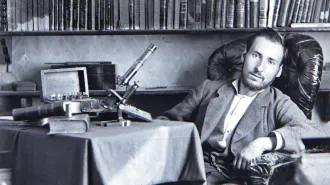 Neuroscience
NeuroscienceHow a scientist-artist transformed our view of the brain
The book ‘The Brain in Search of Itself’ chronicles the life of Santiago Ramón y Cajal, who discovered that the brain is made up of discrete cells.
-
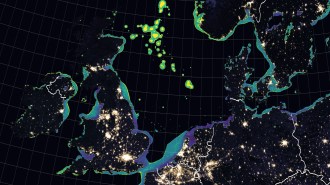 Oceans
OceansEven the sea has light pollution. These new maps show its extent
Coastal cities and offshore development create enough light to potentially alter behavior of tiny organisms dozens of meters below the surface.
-
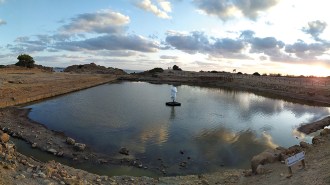 Archaeology
ArchaeologyAncient seafarers built the Mediterranean’s largest known sacred pool
The Olympic-sized pool, once thought to be an artificial inner harbor, helped Phoenicians track the stars and their gods, excavations reveal.
By Bruce Bower -
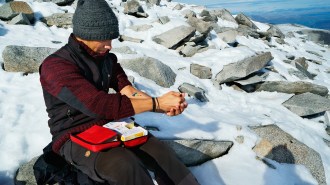 Health & Medicine
Health & MedicineA gene therapy for hemophilia boosts levels of a crucial clotting protein
A one-time, gene-based treatment for hemophilia increased the amount of a necessary blood clotting protein in men with a severe form of the disease.
-
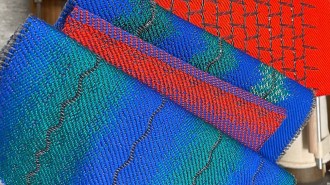 Materials Science
Materials ScienceThis fabric can hear your heartbeat
With special fibers that convert tiny vibrations to voltages, a new fabric senses sounds, letting it act as a microphone or a speaker.
-
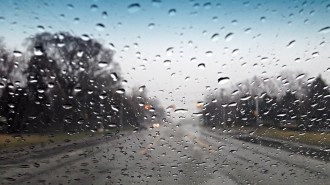 Physics
PhysicsPhysicists explain the mesmerizing movements of raindrops on car windshields
Wind and gravity compete to make some raindrops go up while others slide down, a mathematical analysis suggests.
-
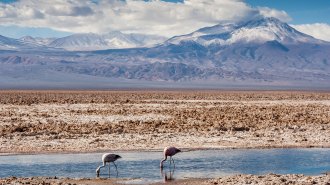 Life
LifeLithium mining may be putting some flamingos in Chile at risk
Climate change and lithium mining are threatening the flooded salt flats that flamingos in Chile depend on, a study suggests.
By Jake Buehler -
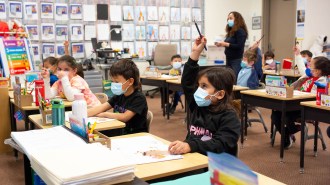 Health & Medicine
Health & MedicineSchool mask mandates in the U.S. reduced coronavirus transmission
Mandatory masking lowered transmission rates to nearly one-fourth those of schools where masks were optional, data from over 1 million children show.
By Anna Gibbs -
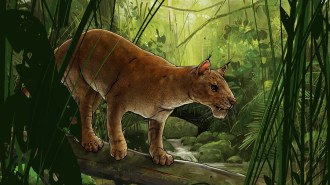 Paleontology
PaleontologyA new saber-toothed mammal was among the first hypercarnivores
A 42-million-year-old jawbone with slicing teeth and a gap to fit saberlike teeth is pegged to a new species of the mysterious Machaeroidine group.
-
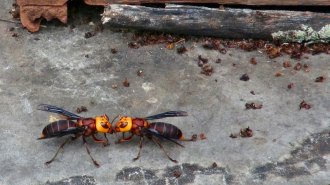 Animals
AnimalsHow to make irresistible traps for Asian giant hornets using sex
Traps baited with compounds found in the sex pheromone of hornet queens attracted thousands of males in China.
-
 Astronomy
AstronomySome of the sun’s iconic coronal loops may be illusions
Folds in the plasma that streams from the sun might trick the eye into seeing the well-defined arches, computer simulations of the solar atmosphere show.
-
 Health & Medicine
Health & Medicine50 years ago, oxygen was touted as a potential memory loss treatment
In 1972, researchers were studying whether hyperbaric chambers could help reverse senility. Today, science is still piecing together clues.